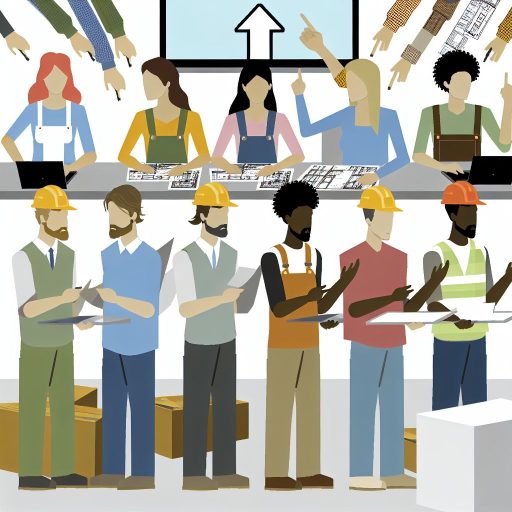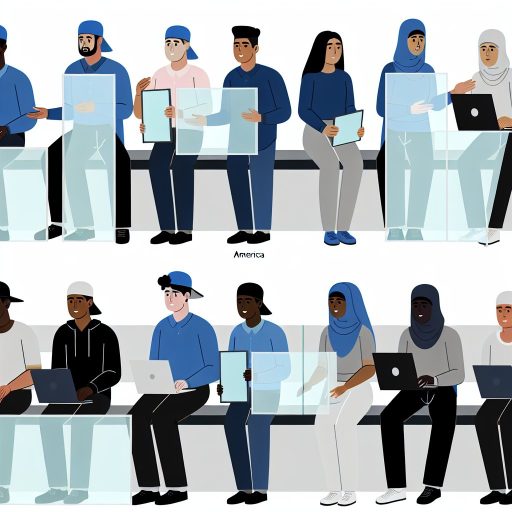Introduction
In today's high-tech world, machinist jobs play a crucial role in various industries.
From manufacturing to automotive, machinists are essential for creating precision parts and components.
Types of Machinist Jobs
- CNC Machinists
They specialize in operating computer numerical control machines. - Manual Machinists
They use traditional tools like lathes and mills to craft parts based on blueprints. - Tool and Die Makers
They create tools and molds to produce specific parts for various industries. - Maintenance Machinists
They focus on repairing and maintaining machinery in manufacturing plants. - Prototype Machinists
They construct prototypes of new products for testing and development purposes. - Production Machinists
They operate machines in mass production settings to produce large quantities of parts. - Aerospace Machinists
They specialize in manufacturing parts for aircraft and spacecraft requiring high precision. - Automotive Machinists
They work on engines and other automotive components to ensure industry standards are met. - Medical Device Machinists
They produce intricate parts for medical devices with strict quality and safety requirements. - Fabricator Machinists
They create and assemble metal structures often involving welding and shaping processes.
CNC Machinist
Definition and Role of a CNC Machinist
A CNC machinist operates computer numerical control machines.
They create precision parts using these machines.
Skills and Qualifications Required for a CNC Machinist
- Strong understanding of blueprint reading and interpreting technical drawings.
- Proficiency in programming and operating CNC machinery.
- Attention to detail and precision to ensure accurate measurements.
- Knowledge of different materials and their properties to select appropriate tools.
Types of Machinery and Tools Used by CNC Machinists
- CNC Milling Machine: removes material from a workpiece by feeding a rotating tool.
- CNC Lathe Machine: shapes materials by rotating the workpiece on its axis.
- CNC Router: cuts, engraves, and shapes materials like wood, plastic, and metal.
- Cutting Tools: end mills, drills, reamers, and inserts are used in CNC machining.
- Measurement Tools: calipers, micrometers, and gauges ensure quality control.
Manual Machinist
A manual machinist is a skilled professional.
They operate machinery to produce precision metal parts.
Definition and role of a manual machinist
A manual machinist is responsible for setting up manual machines.
They operate machines such as lathes, mills, and grinders.
Manual machinists read blueprints, set cutting speeds and feeds.
They ensure the finished product meets required specifications.
Skills and qualifications required for a manual machinist
- Strong mechanical aptitude
- Ability to read blueprints
- Knowledge of cutting tools and their applications
- Attention to detail
- Mathematical skills
- Physical stamina
- High school diploma or equivalent
- Completion of a machinist training program
Types of machinery and tools used by manual machinists
Manual machinists use various machinery and tools to make precision parts.
Some common machines and tools include:
- Lathes: used to rotate the workpiece against a cutting tool
- Mills: used to remove material from a workpiece
- Grinders: used to achieve precision surface finishes
- Drills: used to create holes in a workpiece
- Saws: used to cut workpieces into smaller pieces
Manual machinists play a crucial role in the manufacturing industry.
They produce precision parts for a wide range of applications.
Their skills and expertise are highly demanded across many industries.
Manual machinists are essential to creating machinery and equipment.
Explore Further: How to Start Your Career as a Professional Mover
Tool and Die Maker
A tool and die maker is a skilled professional.
They are responsible for creating and repairing tools, jigs, and fixtures used in manufacturing processes.
- Definition and role of a tool and die maker: Tool and die makers interpret engineering drawings.
They use specialized tools and equipment to shape metal.
They ensure precision in the production of parts and components. - Skills and qualifications required for a tool and die maker: Individuals need a strong understanding of mathematics and mechanical principles.
They must operate machine tools and know different metals and materials. - Importance of precision and attention to detail in this job: Precision is crucial as slight errors lead to defective parts or components.
Attention to detail ensures accuracy and consistency in manufacturing.
Tool and die makers play a critical role in the manufacturing industry.
Transform Your Career Today
Unlock a personalized career strategy that drives real results. Get tailored advice and a roadmap designed just for you.
Start NowThey produce high-quality tools essential for making various products.
Their expertise and attention to detail improve the efficiency and effectiveness of manufacturing processes.
Find Out More: Health and Fitness Tips for Active Fishermen
Maintenance Machinist
A maintenance machinist is a skilled individual responsible for keeping machinery in optimal working condition.
Skills and Qualifications Required:
- Strong mechanical aptitude
- Knowledge of machine operations
- Ability to read blueprints
- Proficiency in troubleshooting
- Experience with precision measuring tools
Responsibilities:
- Performing routine maintenance on machinery
- Diagnosing and repairing mechanical issues
- Calibrating machines to ensure accuracy
- Ordering and replacing parts as needed
- Collaborating with engineers and production teams
Maintaining and Repairing Machinery in Various Industries:
A maintenance machinist plays a crucial role in the functionality of machinery across a wide range of industries:
- Manufacturing: Ensuring production lines run smoothly
- Automotive: Keeping equipment in top condition for vehicle assembly
- Aerospace: Maintaining precision machines for aircraft manufacturing
- Construction: Repairing heavy machinery for building projects
- Food Processing: Ensuring food safety by maintaining processing equipment
Maintenance machinists are essential in preventing breakdowns and maximizing efficiency across various industries.
Find Out More: Trends in Interior Painting: What’s Hot in 2025
Definition and Role of a Production Machinist
A production machinist is responsible for operating machinery to create parts and products in a manufacturing setting.
They work with precision tools to fabricate metal or plastic components based on technical drawings and specifications.
Skills and Qualifications Required for a Production Machinist
- Proficiency in reading and interpreting blueprints
- Knowledge of various machining techniques
- Ability to use precision measuring instruments
- Experience with CNC machines
- Strong attention to detail and quality control
- Problem-solving skills
- Basic math and computer skills
Importance of Meeting Production Quotas and Deadlines in This Job
Meeting production quotas and deadlines is crucial for a production machinist to ensure the smooth workflow of the manufacturing process.
Failing to meet these targets can result in delays in production, increased costs, and potentially lost business opportunities.
By adhering to timelines and quotas, production machinists help maintain efficiency and profitability for the company.
Explore Further: How to Start Your Own Construction Company

Aerospace Machinist
Definition and Role
An aerospace machinist is responsible for producing precision parts.
These parts and components are for aircraft and spacecraft.
Skills and Qualifications
- Strong knowledge of CNC machining and manual machining techniques.
- Ability to read and interpret technical drawings and blueprints.
- Attention to detail and high level of precision in work.
- Knowledge of materials used in aerospace engineering.
- Familiarity with aerospace industry regulations and standards.
Precision and Safety Considerations
Precision is crucial in aerospace machining to meet strict quality standards.
Safety protocols must be followed to prevent accidents.
Transform Your Career Today
Unlock a personalized career strategy that drives real results. Get tailored advice and a roadmap designed just for you.
Start NowThese protocols protect both the machinist and the equipment.
Automotive Machinist
Automotive Machinists specialize in repairing automotive parts and systems.
They play a crucial role in keeping vehicles safe and efficient.
Definition and Role of an Automotive Machinist
Automotive Machinists are skilled technicians who work on various vehicle components.
They repair, analyze, and fabricate parts to maintain vehicle condition.
Skills and Qualifications Required for an Automotive Machinist
Individuals need strong mechanical skills and attention to detail.
They must be familiar with machine tools like lathes, milling machines, and grinders.
Importance of Knowledge of Specific Automotive Systems and Parts
Knowledge of automotive systems and parts is essential for machinists.
Understanding how components work helps diagnose and solve problems efficiently.
Varieties of Machinist Careers and Their Opportunities
The different types of machinist jobs include CNC machinists, manual machinists, and tool and die makers.
Individuals interested in a machining career must explore various opportunities available in the field.
By understanding the distinctions between these roles, people can make informed career decisions.
Each machinist job offers unique challenges and growth opportunities for specialization.
Whether working with computer-controlled machines or traditional tools, machinists play an essential role in manufacturing.
Exploring the diverse skills and responsibilities across machinist jobs helps individuals find rewarding careers in machining.




